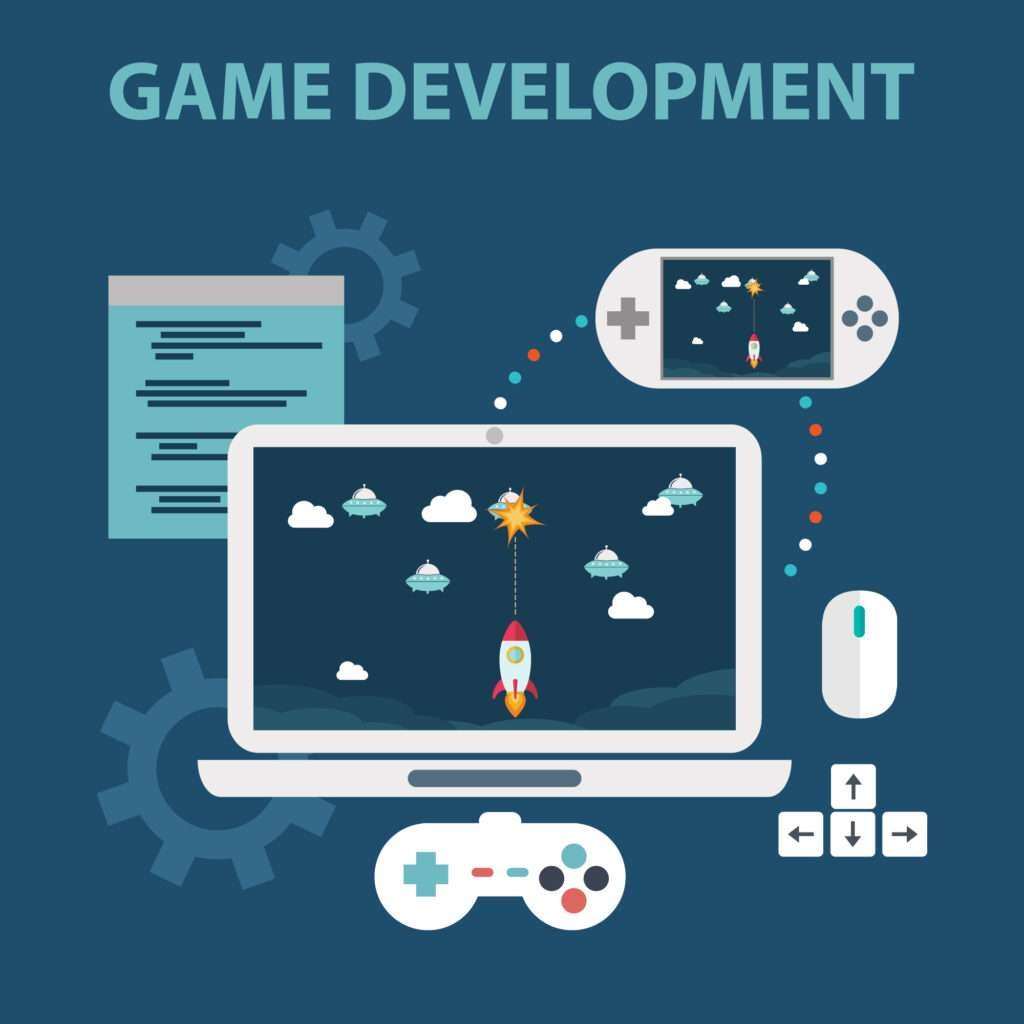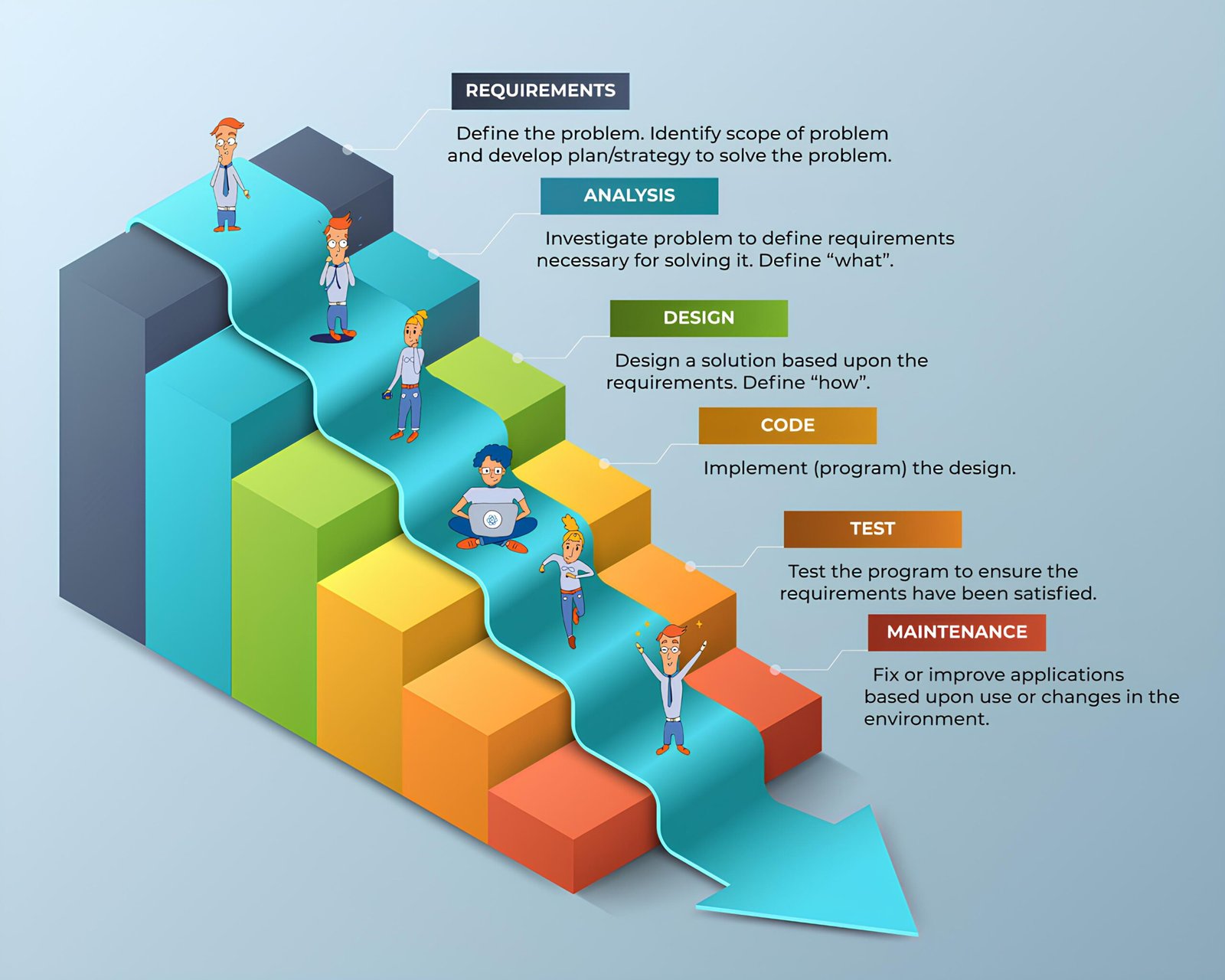As the gaming industry continues its meteoric rise, aspiring developers worldwide are eager to bring their imaginative visions to life. However, navigating the intricate realm of programming languages can be a daunting task, with each option boasting unique strengths and nuances. In this comprehensive guide, we’ll embark on an odyssey through the top programming languages for game development, empowering you to make an informed choice that aligns with your project’s ambitions and your personal coding preferences.
The Pursuit of Uncompromising Performance
In the dynamic world of gaming, performance is paramount. Seamless gameplay, captivating graphics, and immersive audio-visual experiences are the hallmarks of a successful title, and the right programming language can be the key to unlocking these coveted attributes. Low-level languages like C++ have long been the industry’s gold standard, offering unparalleled speed and direct hardware access, enabling developers to meticulously optimize every aspect of their creations.
The Reign of C++: A Powerhouse for AAA Titles
When it comes to resource-intensive, graphically rich 3D games, C++ stands as an undisputed titan. Its ability to deliver blistering performance and granular control over memory management has made it the language of choice for many AAA game studios and industry-leading game engines like Unreal Engine, Unity, and CryEngine. While its learning curve may be steep, the rewards of mastering C++ programming language are immense, granting developers the freedom to push the boundaries of what’s possible in gaming.
Python: Simplicity Meets Rapid Prototyping
For those seeking a more accessible entry point into game development, Python programming language offers a beginner-friendly alternative. While it may not match the raw power of C++, Python’s simplicity and extensive libraries, such as PyGame and Panda3D, make it an ideal choice for prototyping and crafting 2D indie games or mobile experiences. Its readable syntax and vibrant community foster a nurturing environment for aspiring developers to hone their skills and bring their initial gaming concepts to fruition.
Conquering Cross-Platform Compatibility
In today’s interconnected world, the ability to create games that seamlessly span multiple platforms is a coveted asset. From PCs and consoles to mobile devices, developers must navigate the intricacies of cross-platform compatibility to ensure their creations reach the broadest possible audience. Certain programming languages have emerged as champions in this arena, offering developers a streamlined path to multi-platform success.
Unity and C#: A Dynamic Duo for Multi-Platform Mastery
The Unity game engine, in tandem with the versatile C# programming language, has become a go-to solution for developers seeking to conquer the cross-platform challenge. Unity’s robust framework handles much of the heavy lifting, enabling developers to write their code once in C# and seamlessly programming language deploy it across a multitude of platforms, including Windows, macOS, Linux, iOS, Android, and various gaming consoles. This powerful combination empowers developers to focus on crafting engaging gameplay experiences while enjoying the benefits of widespread compatibility.
Java and Swift: Mobile Gaming’s Dynamic Duo
For those dedicated to the realm of mobile gaming, Java and Swift programming languages have emerged as the languages of choice. Java’s cross-platform capabilities and extensive library support have made it a staple in the Android gaming ecosystem, enabling developers to create immersive experiences tailored to the vast array of Android devices. Conversely, Swift, a language meticulously crafted by Apple, provides unparalleled access to the latest iOS frameworks, ensuring developers can harness the full potential of Apple’s cutting-edge mobile hardware.
Tailoring Languages to Game Genres
Just as different genres of literature demand distinct literary styles, the diverse world of gaming necessitates a nuanced approach to programming language selection. From pulse-pounding first-person shooters to whimsical 2D platformers, each genre presents its own set of challenges and requirements, and choosing the right language can mean the difference between a captivating experience and a forgettable one.
Real-Time 3D Games: C#’s Immersive Prowess
When it comes to crafting real-time 3D games with intense graphics, physics simulations, and responsive gameplay, C# emerges as a formidable contender. While it may not match the raw speed of C++, C#’s seamless integration with game engines like Unity allows developers to create awe-inspiring, immersive 3D worlds that captivate players with their realism and responsiveness. From action-packed first-person shooters to sweeping open-world adventures, C# programming language provides the perfect blend of power and accessibility for developers seeking to push the boundaries of real-time gaming.
2D Games: JavaScript’s Versatile Playground
For those drawn to the nostalgic charm of 2D gaming experiences, JavaScript stands as a versatile and capable ally. With its seamless integration into HTML5 and the robust Canvas API, JavaScript empowers developers to breathe life into vibrant 2D sprites, animations, and particle effects with ease. Game engines and frameworks like Phaser further enhance JavaScript’s capabilities, making it an ideal choice for crafting the next hit pixel art or side-scrolling platformer, while also opening doors to the burgeoning world of browser-based gaming.
Harnessing the Power of Game Engines
Game engines are the beating hearts of modern game development, providing developers with a comprehensive suite of tools and frameworks to bring their visions to life. However, many of these engines are inextricably linked to specific programming languages, and understanding this symbiotic relationship is crucial for developers seeking to leverage the full potential of their chosen engine.
Unity and Unreal Engine: C# and C++ Powerhouses
Two of the most prominent game engines in the industry, Unity and Unreal Engine, have forged deep ties with the programming languages C# and C++, respectively. Unity’s intuitive interface and robust scripting API are tailored for C#, making it an accessible entry point for developers of all skill levels. Conversely, Unreal Engine’s unparalleled power and flexibility are fueled by the raw performance of C++, granting experienced developers the ability to push the boundaries of what’s possible in gaming.
Custom Game Engines: Embracing Language Flexibility
For those daring enough to venture into the realm of custom game engine development, the shackles of language constraints are loosened. While C++ programming language remains the industry standard for AAA game engines, indie developers have found success in leveraging more accessible languages like JavaScript or Python to craft their own custom engines. This approach offers unparalleled creative freedom, allowing developers to tailor every aspect of their engine to the specific needs of their game, albeit at the cost of increased development complexity.
Nurturing Your Skills: The Importance of Learning Curves and Community Support
Mastering a programming language is a journey, and the path you choose can significantly impact your chances of success. Factors such as the language’s learning curve and the availability of robust community support can make the difference between a frustrating uphill battle and a rewarding, enriching experience.
Beginner-Friendly Languages: Python and JavaScript
For those embarking on their coding adventures, languages like Python and JavaScript offer gentle on-ramps to the world of game development. Python’s highly readable syntax and extensive documentation make it an ideal starting point, while JavaScript’s ubiquity and thriving community ensure a wealth of resources and support at every turn. These languages provide a nurturing environment for newcomers to develop their skills and gain confidence before tackling more complex endeavors.
Robust Community Support: A Lifeline for Developers
Regardless of your chosen language, the strength of its community can be a game-changer. Active forums, vibrant Discord channels, and comprehensive StackOverflow tags can provide invaluable support when you encounter roadblocks or seek guidance on best practices. Languages like C#, Java, and Python boast thriving communities of developers eager to share their knowledge and collaborate, ensuring that even the most daunting challenges can be overcome with the collective wisdom of the gaming development community.

Embracing Versatility: Programming Languages Beyond Gaming
While the primary focus of this guide has been on programming languages for game development, it’s important to recognize that many of these languages transcend the boundaries of gaming and offer versatile applications across various domains. By mastering a language like C++, C#, Java, or Python, you not only unlock the potential to create captivating gaming experiences but also open doors to a world of opportunities in fields such as web development, artificial intelligence, data science, and more.
C++: A Powerhouse for System Programming
Beyond its prowess in game development, C++ programming language has long been a cornerstone of system programming, powering operating systems, device drivers, and mission-critical applications that demand uncompromising performance and low-level control. Its object-oriented nature and extensive standard library make it a versatile choice for developers seeking to tackle complex challenges across diverse industries.
C#: Embracing the .NET Ecosystem
While C# programming language has found a home in the gaming world through its integration with Unity, its true strength lies in its deep ties to the .NET ecosystem. From web development and desktop applications to cloud computing and enterprise software, C# programming language offers a robust and scalable solution for developers seeking to build robust, cross-platform applications with the backing of Microsoft’s powerful development tools and frameworks.
Java: The Ubiquitous Language of Enterprise
Java’s cross-platform capabilities and extensive library support have made it a staple in the enterprise software world, powering everything from web applications and mobile apps to big data analytics and cloud computing solutions. Its strong typing, object-oriented nature, and robust security features make it a trusted choice for developers working in mission-critical environments, ensuring their applications are reliable, scalable, and secure.
Python: A Swiss Army Knife for Data Science and AI
While Python’s accessibility has made it a popular choice for game development, its true versatility shines in the realms of data science, machine learning, and artificial intelligence. With powerful libraries like NumPy, Pandas, and TensorFlow, Python has become the language of choice for researchers, data analysts, and AI engineers, enabling them to tackle complex problems and drive innovation in these rapidly evolving fields.
Embracing the Future: Emerging Trends and Opportunities
The world of game development is in a constant state of evolution, with new technologies, platforms, and paradigms continually reshaping the landscape. As developers, it’s crucial to stay attuned to these emerging trends and seize the opportunities they present, ensuring that our skills remain relevant and our creations remain at the forefront of innovation.
Cloud Gaming: Redefining the Gaming Experience
Cloud gaming, a revolutionary technology that allows gamers to stream high-quality gaming experiences directly to their devices, is poised to disrupt the industry. As this technology continues to gain traction, developers will need to adapt their programming approaches to leverage the power of cloud computing, optimizing their games for seamless streaming and leveraging the scalability and flexibility of cloud-based architectures.
Virtual and Augmented Reality: Immersive Worlds Await
The realms of virtual reality (VR) and augmented reality (AR) have captivated the imaginations of gamers and developers alike, offering unprecedented levels of immersion and interactivity. As these technologies continue to mature, developers will need to master the intricacies of programming for these unique environments, leveraging specialized libraries and frameworks to create experiences that blur the lines between the digital and physical worlds.
Ethical Considerations in Game Development
As the gaming industry continues to grow and evolve, it’s crucial for developers to remain mindful of the ethical implications of their creations. From promoting inclusive and diverse representation to addressing issues such as addiction and responsible monetization practices, the choices we make as developers can have far-reaching impacts on the gaming community and society as a whole. By embracing ethical principles and fostering a culture of responsibility, we can ensure that the gaming industry continues to be a force for positive change and enrichment.
Conclusion: Unleash Your Creativity, Forge Your Path
In the ever-expanding universe of game development, the programming languages you choose to master will shape the boundaries of your creative potential. Whether you seek to craft immersive 3D worlds, captivating 2D experiences, or innovative cross-platform adventures, the languages explored in this guide offer a diverse array of tools and capabilities to bring your visions to life.
Remember, the journey of a game developer is one of continuous learning and adaptation. As new technologies emerge and paradigms shift, it’s essential to remain open-minded and embrace the opportunities that arise. Cultivate a passion for lifelong learning, immerse yourself in vibrant communities, and never hesitate to explore uncharted territories – for it is in these uncharted realms that true innovation takes root.
So, take the leap, choose your language, and let your imagination run wild. The gaming world awaits your unique creations, and with the right tools and a unwavering determination, you possess the power to leave an indelible mark on this ever-evolving industry. Embrace the challenge, master your craft, and unleash your creativity – the future of gaming is yours to shape.
Subscribe to our newsletter to receive future updates on Technology, Artificial Intelligence (AI), and Tech Trends. Explore our categories to find more relevant stuff. Stay informed and motivated with our most recent insights!




